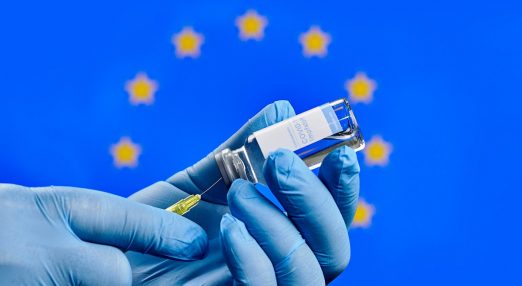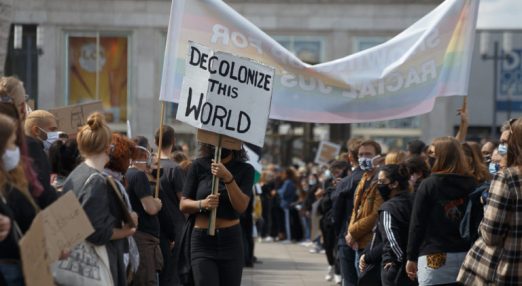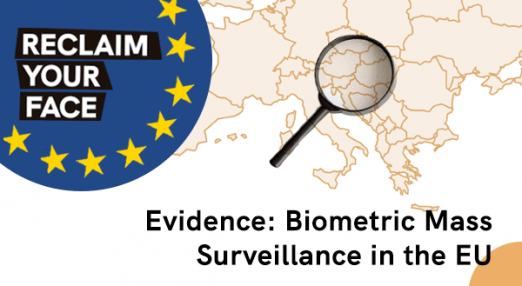Our work
EDRi is the biggest European network defending rights and freedoms online. We work to to challenge private and state actors who abuse their power to control or manipulate the public. We do so by advocating for robust and enforced laws, informing and mobilising people, promoting a healthy and accountable technology market, and building a movement of organisations and individuals committed to digital rights and freedoms in a connected world.
Filter resources
-

EU: New “ad-hoc working group” on vaccine passports starts work – in secret
EDRi's member Statewatch shares that discussions amongst EU member states on how to approach plans for digital vaccination certificates are taking place in a new "ad-hoc working group", a format that is not likely to foster transparency - particularly given that the group has said it will not be keeping "minutes as such".
Read more
-

Buy a phone, get a tracker: unauthorized tracking code illegally installed on Android phones
EDRi's member noyb launched further action against Google’s AAID (Android Advertising Identifier), following similar complaints against Apple’s IDFA. The somewhat hidden ID allows Google and all apps on the phone to track a user and combine information about online and mobile behaviour. While these trackers clearly require the users’ consent (as known from “cookie banners”), Google neglects this legal requirement. noyb therefore filed a complaint against Google’s tracking code AAID.
Read more
-

Regulating Border Tech Experiments in a Hostile World
We are facing a growing panopticon of technology that limits people’s movements, their ability to reunite with their families, and at the worst of times, their ability to stay alive. Power and knowledge monopolies are allowed to exist because there is no unified global regulatory regime governing the use of new technologies, creating laboratories for high-risk experiments with profound impacts on people’s lives.
Read more
-

Computers are binary, people are not: how AI systems undermine LGBTQ identity
Companies and governments are already using AI systems to make decisions that lead to discrimination. When police or government officials rely on them to determine who they should watch, interrogate, or arrest — or even “predict” who will violate the law in the future — there are serious and sometimes fatal consequences. EDRi's member Access Now explain how AI can automate LGBTQ oppression.
Read more
-

EU’s AI proposal must go further to prevent surveillance and discrimination
The European Commission has just launched the EU draft regulation on artificial intelligence (AI). AI systems are being increasingly used in all areas of life – to monitor us at protests, to identify us for access to health and public services, to make predictions about our behaviour or how much ‘risk’ we pose. Without clear safeguards, these systems could further the power imbalance between those who develop and use AI and those who are subject to them.
Read more
-

Civil society calls for stronger protections for fundamental rights in Artificial Intelligence law
In light of the recently leaked draft of the Regulation on A European Approach For Artificial Intelligence from January 2021 , EDRi and 14 of our members signed an open letter to the president of the European Commission Ursula von der Leyen to underline the importance of ensuring the necessary protections for fundamental rights in the new regulation.
Read more
-

Artificial Intelligence and Fundamental Rights: Document Pool
Find in this doc pool all EDRi analyses and documents related to Artificial Intelligence (AI) and fundamental rights
Read more
-

Creating Conditions for a Decolonised Digital Rights Field
Since 2019, DFF and EDRi have been working to initiate a decolonising process for the digital rights field. Reflecting on the increased challenges to our digital rights, we realised how imperative it is that the field truly reflects everyone in European society. This means improving representation in the digital rights field, but more crucially undoing the power structures preventing us from protecting digital rights for everybody.
Read more
-

EDRi-gram, 7 April 2021
Reflecting on the increased challenges to our digital rights, we realised how imperative it is that the field truly reflects everyone in European society. This means improving representation in the digital rights field, but more crucially undoing the power structures preventing us from protecting digital rights for everybody. Approaching digital rights through the lens of decoloniality invites us to interrogate how digital space is occupied, the people who are displaced, and the mechanisms of extraction it requires to exist. This process requires extra work, extra care, extra patience, extra humility as we interrogate that what seems natural.
Read more
-

Evidence shows a European future that is dystopian: #ReclaimYourFace now to protect your city
The latest evidence shows that biometric mass surveillance is rapidly being developed and deployed in Europe without a proper legal basis or respect for our agency as self-determined and autonomous individuals. No one is safe, as our most sensitive data like our faces, eyes, skin, palm veins, and fingerprints are being tracked, traced and analysed on social media, in the park, on the bus, or at work.
Read more
-

Everyone wants to encourage encryption, except for one minister
The Department of Justice and Security in the Netherlands seems to be holding on to the idea that it is possible to weaken encryption "just a little". Simultaneously, the parliament and a monster alliance of organizations tells the minister over and over again: it's impossible. EDRi's member Bits of Freedom sheds some light on the on-going debate on the question.
Read more
-

Why the electronic green vaccination certificate creates new problems instead of solving them
The National Council in Austria passed a legal basis for the electronic immunity certificate project within two days, skipping any kind of review procedure. The digital passes are not a ticket to a normal life, vaccination is. So, special attention should be paid to maintaining the trust of people and the voluntary nature of vaccination, ensuring that people's rights to privacy and freedom of choice are respected. EDRi's member epicenter.works explains what are the concerns with the deployment of green certificates and suggests alternatives to this project.
Read more
